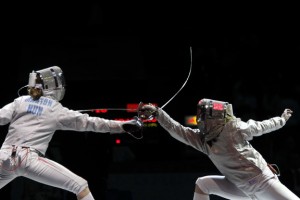
The science is in: physical activity boosts your brainpower. Intuitively, it seems natural that physical fitness would be linked to sharper intelligence, and according to a recent presentation at the 57th Annual Meeting of the American College of Sports Medicine (ACSM), exercise makes you smarter. This is good news for everyone, but particularly so for kids in school looking to make the grade.
Fencing is already a sport associated with intellectualism, often called “physical chess” by coaches, fencers, and fans. Participation in the this sport requires fitness and concentration, a powerhouse duo when it comes to increasing brainpower.
The study presented at the ACSM Meeting found that among 266 undergraduates, those who exercised vigorously for at least 20 minutes per day had higher grade point averages than those who did not. This isn’t the only study showing that physical fitness is linked to greater success in school, and the effect is not limited to college students. Dr. Charles H. Hillman, an Associate Professor at the University of Illinois found that among 259 Illinois 3rd and 5th graders, those in the best physical shape also scored highest on math and reading in standardized testing. Regardless of the children’s individual socioeconomic situation, the findings held.
With all of this research supporting the connection between physical fitness and brainpower, all the more reason to participate in a sport like fencing. Fencing is unique, a sport that asks its participants to make moves and calculations in an instant. In the game of chess, players must think several moves ahead in order to execute a winning strategy. Fencing, similarly, requires the fencer to carefully engage with his or her opponent in order to exploit weakness and score a point. Success in fencing is entirely dependent on the miniscule moves and split-second decisions a fencer makes when competing. So, it seems that by participating in vigorous fencing, not only is a fencer using his brain, he’s increasing his intelligence.
A recent Newsweek article made the connection between physical fitness and success in school, quoting a Harvard psychiatrist who pointed out that the ancient Greeks drew a clear line from physical fitness to individual learning. In other words, this connection is nothing new.
Scientists have long understood that the human body is amazingly complex, and with the help of sophisticated brain-scanning equipment, they’ve been able to go further than ever before in showing why physical fitness has such a profound effect on intelligence. Before this equipment existed, scientists were well aware that aerobic exercise served to pump extra blood to the brain and body, which increased oxygen to the brain cells. However, this is only the beginning. When muscles engage, they release chemicals through the bloodstream and to the brain, which in turn releases more chemicals that boost higher thought.
One of the implications for these findings is the importance of physical fitness programs for school aged children, and for increased support of school-sponsored fitness programs. Children spend a significant portion of their waking hours at school, and most schools have some type of physical education class during the week. The unfortunate by-product of poor student achievement in some schools is the elimination of physical education classes in an effort to increase instructional time. As we see here, this is probably the exact opposite prescription the children need.
Some schools have not ignored the research done by Hillman and others exploring the connection between intelligence and physical fitness. For example, the Newsweek article points out that schools have already taking steps such as putting PE class before reading class. The result is better scores all around.
Ronald Bass, one of the lead researchers in an ACSM study of middle-schoolers’ academic performance and relative physical fitness, found that “students meeting cardiovascular fitness standards ‘were six times more likely to meet or exceed Illinois reading standards and over two-and-a-half times more likely to meet or exceed the math standards.’”
If this weren’t the most compelling reason to reverse the watering-down of physical education in our schools, it would be hard to find the one that is.
The best brain-boosting results are found from cardiovascular exercise, the same type of exercise experienced by avid fencers. Fencing is just one of many sports that incorporate vigorous cardiovascular movement.
The long-view is not only that young people will engage in physical exercise to improve brain function in school, but also that those children will grow into adults that also enjoy physical exercise. With people living longer and longer, dementia and Alzheimer’s disease are greater concerns than they’ve ever been. Those who engage in regular physical exercise are less likely to develop symptoms of Alzheimer’s – a real incentive to get active and stay active.
Fencing is not just a sport for the young. Indeed, it is a unique sport that is accessible by all. Not all parents have the resources or the desire to get their kids involved in sports. Some parents don’t think beyond the football-baseball-soccer triad. If you’re an adult who longs to try fencing, there is no time like the present to get started. The potential for sharpened mental acuity is just one of the benefits you’ll enjoy as you learn the basics of this fascinating sport.
Whether you and children in your care engage in fencing or some other sport that promotes cardiovascular fitness, the important thing is to get moving. In a nation with ever-widening waistlines and declining quality of health, physical exercise is vital to improving our well being and sharpening our intelligence.


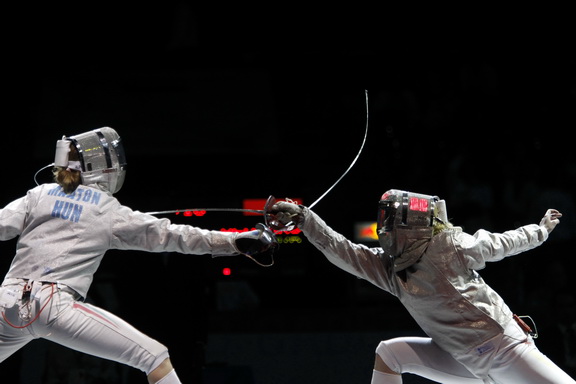

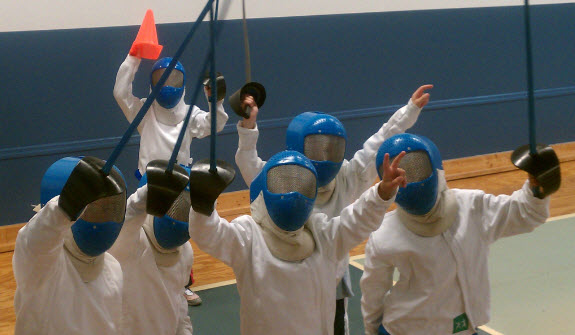
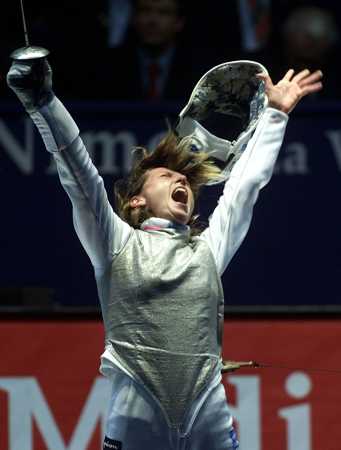
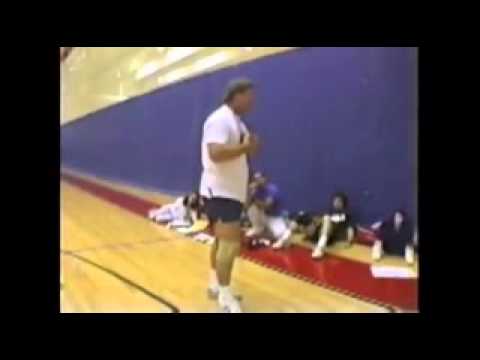
3 Comments
Comments are closed.